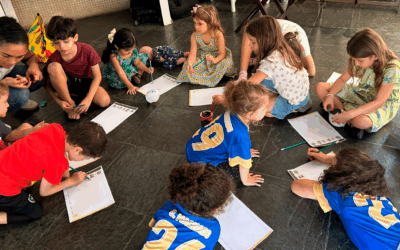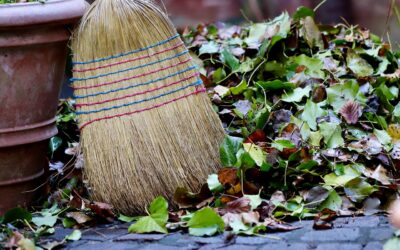 “Arriving in the Holy Land at the end of July when the broadcasts on TV were full of dramatic events, was described by many as just plain crazy! This project of a “temporary Focolare,” that is, a one-month Focolare in Palestine, was supposed to be undertaken in spring, when all was calm. But then weeks before our departure, the situation plunged: “What shall we do?” we wondered. And the answer was: “This is the right time to go, on the other hand, to bear witness to love that overcomes fear.” Surely the Focolare’s ten-year presence in that region was our warranty. And so, on 30 July we settled in a small apartment in Bethlehem. Waking up in the city of Jesus’ birth was really very impressive. “Is this a dream?” we wondered. Soon we started visiting the families, priests, and the youth: all were surprised and happy to see two men focolarini from Italy, and a third who came from Jerusalem to stay with them. As in the Mariapolis in Nazareth, there had also been strong encounters with a big number of participants (despite the situation), where we received a letter with photos from the members of the community residing in Gaza, who could not physically attend. Then on 8 August, right in the midst of the battles, we held an interreligious meeting in Jerusalem with Christian Arabs and Jewish friends together with Muslims: the objective was to pray for peace. It turned out to be a really poignant moment of “intense light” in the black night of the war. A Rabbi surprised us all with his really moving prayer for the children of Gaza. There were 80 participants in all, a tiny miracle, given the situation.
“Arriving in the Holy Land at the end of July when the broadcasts on TV were full of dramatic events, was described by many as just plain crazy! This project of a “temporary Focolare,” that is, a one-month Focolare in Palestine, was supposed to be undertaken in spring, when all was calm. But then weeks before our departure, the situation plunged: “What shall we do?” we wondered. And the answer was: “This is the right time to go, on the other hand, to bear witness to love that overcomes fear.” Surely the Focolare’s ten-year presence in that region was our warranty. And so, on 30 July we settled in a small apartment in Bethlehem. Waking up in the city of Jesus’ birth was really very impressive. “Is this a dream?” we wondered. Soon we started visiting the families, priests, and the youth: all were surprised and happy to see two men focolarini from Italy, and a third who came from Jerusalem to stay with them. As in the Mariapolis in Nazareth, there had also been strong encounters with a big number of participants (despite the situation), where we received a letter with photos from the members of the community residing in Gaza, who could not physically attend. Then on 8 August, right in the midst of the battles, we held an interreligious meeting in Jerusalem with Christian Arabs and Jewish friends together with Muslims: the objective was to pray for peace. It turned out to be a really poignant moment of “intense light” in the black night of the war. A Rabbi surprised us all with his really moving prayer for the children of Gaza. There were 80 participants in all, a tiny miracle, given the situation.  We felt the deep change in three aspects: pain, love and prayer. The first, the pain for the stories we heard, aspirations to be a State, and for a true and lasting peace, water freedom of movement a better future for our children and above all, the aspiration to live in harmony and peace with all our neighbours. The second element was love: we have received so much love in these three weeks! Much more than what we gave. And the third, prayer: long moments, at times entire days passed in silence, praying for all those dying and those shooting; a there was also prayer for the arrival of mutual forgiveness in this blood-soaked land. The characteristic of the whole experience was life in the midst of the population lost in the crowd. Not being in a comfortable apartment in the big city, we learned to ration water which was scarce, for example. This is practically part of the life of the Palestinians. We wanted to and are still experiencing what it is like to pass through the check-points, what it means to smile and greet a soldier with a machine gun on his shoulder; or to be nice to an old lady, trying to sell her mint plants under the burning sun. In all these things we felt God’s presence. And you could feel God in the Holy Land walking at your side once again, down these roads. We lived this experience with all those who are here to contribute to making Jesus’ dream come true: ‘that all may be one’ (John 17,21). That prayer which Chiara Lubich gave her life for. The day will come when the united world will dawn on the Holy Land: it will be the world of mutual forgiveness, the true water that will quench this thirst for peace. And on that day, all of us together will have to be here to continue loving.”
We felt the deep change in three aspects: pain, love and prayer. The first, the pain for the stories we heard, aspirations to be a State, and for a true and lasting peace, water freedom of movement a better future for our children and above all, the aspiration to live in harmony and peace with all our neighbours. The second element was love: we have received so much love in these three weeks! Much more than what we gave. And the third, prayer: long moments, at times entire days passed in silence, praying for all those dying and those shooting; a there was also prayer for the arrival of mutual forgiveness in this blood-soaked land. The characteristic of the whole experience was life in the midst of the population lost in the crowd. Not being in a comfortable apartment in the big city, we learned to ration water which was scarce, for example. This is practically part of the life of the Palestinians. We wanted to and are still experiencing what it is like to pass through the check-points, what it means to smile and greet a soldier with a machine gun on his shoulder; or to be nice to an old lady, trying to sell her mint plants under the burning sun. In all these things we felt God’s presence. And you could feel God in the Holy Land walking at your side once again, down these roads. We lived this experience with all those who are here to contribute to making Jesus’ dream come true: ‘that all may be one’ (John 17,21). That prayer which Chiara Lubich gave her life for. The day will come when the united world will dawn on the Holy Land: it will be the world of mutual forgiveness, the true water that will quench this thirst for peace. And on that day, all of us together will have to be here to continue loving.”
Luigi Butori (Italy)




0 Comments